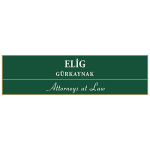Gönenç Gürkaynak and Öznur İnanılır of ELIG, Attorneys-at-Law assess the impact of recent changes made to Turkey’s competition law framework
This year has seen significant competition law related legislative amendments. In particular, there have been two main changes to Turkish competition legislation.
The first encompasses amendments made to the merger control regime through Communiqué no. 2017/2 on the Amendment of Communiqué no. 2010/4 on Mergers and Acquisitions Subject to the Approval of the Competition Board which introduced two significant amendments to the Turkish merger control regime regarding creeping acquisitions. The second is the new block exemption regime for the motor vehicle sector introduced by Communiqué no. 2017/3 for Vertical Agreements in the Motor Vehicle Sector in Turkey and the related Guidelines on the Explanation of the Block Exemption Communiqué no. 2017/3 for the Vertical Agreements in the Motor Vehicle Sector in Turkey, which marks the beginning of a new era with respect to competition law within that sector.
Amendments to the merger control regime
Communiqué no. 2017/2 was published in the Official Gazette on February 24 and entered into force in the same day. It introduced three amendments to Communiqué no. 2010/4 on Mergers and Acquisitions Subject to the Approval of the Competition Board. The most significant amendment is related to the control of creeping acquisitions. Other changes are detailed below.
Firstly, Communiqué no. 2017/2 abolishes the biannual obligation of the Competition Board to revise the merger control thresholds set by article 7 of Communiqué No. 2010/4. Therefore, the Competition Board is no longer under a duty to conduct a revision on the merger control thresholds every two year. As a result, the Competition Board can alter the thresholds at its own discretion in the future.
Secondly, it introduces a new paragraph in article 10 of Communiqué no. 2010/4 to further clarify the notification procedure for a transaction carried out by way of series of transactions in terms of securities within the stock exchange, in line with article 7(2) of EU Commission's Merger Regulation. The newly-introduced provision enables such transactions to be notified to the Turkish Competition Board (TCB) after the transaction is carried out provided that: (i) the concentration is notified to the TCB without delay; and (ii) the voting rights attached to the acquired securities are not exercised or exercised solely to maintain the full value of the investments based on a derogation granted by the TCB. Additionally, the TCB reserves the right to impose conditions and obligations on the parties to ensure effective competition.
Even though there were no specific provisions under Communiqué no. 2010/4 before the amendment made by Communiqué no. 2017/2 regarding the transactions realised by way of series of transactions in terms of securities within the stock exchange, the TCB reviewed the acquisition of Cimpor-Cimentos de Portugal by Camargo Corrêa by way of a public tender offer in Camargo/Cimpor in 2012. Camargo made the merger control filing for this transaction after the public tender offer and before acquiring shares in Cimpor. In its decision, the TCB stated that even if Camargo had acquired shares which enabled control of Cimpor before the it approved the transaction, it did not use the voting rights before obtaining antitrust clearance for this transaction, and as such there was no violation of Law no. 4054 on the protection of competition. Therefore, it can be indicated that the TCB's decision provides to an extent a protective cloak for such transactions in the event that the merger filing is made as soon as possible and the acquirer do not exercise control power that the shares grant itself prior to the TCB's clearance of the transaction. However, the TCB's decision remained a one-of-a-kind and there was always the possibility that it could decide to the contrary in other cases. Therefore, the amendment introduced by the Communiqué no. 2017/2 provides legal certainty to for such cases.
Thirdly – and maybe the most important amendment that Communiqué no. 2017/2 made to the Turkish merger control regime – are the changes to the creeping acquisitions framework. Before Communiqué no. 2017/2, transactions carried out between the same persons or parties within a period of two years were considered as a single transaction for the calculation of turnover thresholds (under Communiqué no. 2010/4). However, Communiqué no. 2017/2 introduced a more detailed and broader scope for two or more transactions to be regarded as a single transaction. The relevant provision reads:
"Two or more transactions carried out between the same persons or parties or within the same relevant product market by the same undertaking concerned within a period of three years shall be considered as a single transaction for the calculation of turnovers listed in Article 7 of this Communiqué".
As is seen from the above, the new rule introduced by Communiqué no. 2017/2 increases the observation period from two to three years. It also indicates that in addition to transactions between the same persons or parties, any transactions within the same relevant product market by the same undertaking will also be considered as a single transaction.
It would seem that the Competition Authority is trying to ensure no creeping acquisition slips through its net by broadening the initial scope of definition. While it is expected that merger filings triggered by this rule will be rare, the new same relevant product market criterion might create uncertainty. As market definition is indeed one of most controversial areas in competition law, Communiqué no. 2017/2 leaves the determination of the relevant product market open in order to assess whether two or more transactions will be considered as a single transaction. Whether these amendments will bring about significant changes to the Turkish merger control regime, to the definitive scope of the transactions that they encompass or to the interpretation of a relevant product market remains to be seen.
Since they are rather new, they have not yet been fully tested. However, they are expected to contribute to an increase in the transactions notified to the TCB.
New motor vehicle sector block exemption regime
Another prominent amendment with respect to Turkish competition law legislation in 2017 is the new Block Exemption Communiqué no. 2017/3 for Vertical Agreements in the Motor Vehicle Sector in Turkey, published in the Official Gazette on February 24. The related Guidelines on the Explanation of the Block Exemption Communiqué no. 2017/3 for the Vertical Agreements in the Motor Vehicle Sector in Turkey were published by the TCB on March 7. The New Communiqué revoked Block Exemption Communiqué no. 2005/4 for Vertical Agreements and Concerted Practices in the Motor Vehicle Sector, while the Guidelines aim to provide certainty with regards to the interpretation of the new Block Communiqué.
The scope of the block exemption covers vertical agreements concerning the purchase, sale or resale of new motor vehicles, the purchase, sale or resale of motor vehicle spare parts, and the provision of maintenance and repair services for motor vehicles. The vertical agreements that include vertical restraints and which fulfil the conditions stated under the block exemption provided by Communiqué no. 2017/3 are exempt from the prohibition of article 4 of Law no. 4054 (based on article 5 of the same law).
The new Communiqué regulates the market thresholds used to assess a vertical agreement which will benefit from the block exemption by unifying the thresholds for quantitative distribution and exclusive distribution agreements. In this regard, the new Communiqué reduces the market share threshold of the previous Communiqué from 40% to 30%. Additionally, while preserving the market share thresholds used for sales and after-sales markets at 30%, the new Communiqué follows the same approach of not setting a market share threshold for qualitative selective distribution systems.
Some conditions have been omitted from the scope of the new Communiqué in order for an agreement to benefit from block exemption: (i) the freedom to transfer agreements concluded between the distributors and the suppliers; (ii) a detailed, reasoned and written termination notice; and (iii) granting the parties (suppliers and distributors) the right to refer the conflicts arising from the agreement to an independent expert or to an arbitrator. These previous conditions that were required in the previous motor vehicle block exemption regime under Communiqué no. 2005/4 were regarded as burdensome and practically inapplicable by many of the undertakings active in the sector. The provisions related to the termination notice periods (six month notice period for agreements that are made for at least five years, and at least two-years' notice for agreements with an indefinite period) have been kept on in the new Communiqué. The TCB recognises that the termination notice periods are useful to protect dealers, repair services and other parties active in the downstream markets that may incur significant sunk costs to operate and maintain the power balance between the parties of vertical agreements in the motor vehicle sector.
Within the framework of the previous Communiqué, non-compete obligations were regulated cumulatively for sales of motor vehicles, maintenance and repair services and spare parts. But the new Communiqué and Guidelines regulate and provide explanations for them separately.
One of the most substantial amendments in Communiqué no. 2017/3 is the revision of the non-compete obligation regarding the sale of motor vehicles, which is defined as:
"any direct or indirect obligation imposed on the buyer, aimed at purchasing, from the supplier or another undertaking to be designated by the supplier, more than 80% of the goods or services, or substitutes of such goods or services subject to the agreement, based on the purchasers purchases within the previous calendar year, in the market for sales of motor vehicle".
Following this new definition, the 30% threshold in the previous Communiqué is changed to 80% solely for the sales of motor vehicles. In this regard, the new Communiqué allows for abandoning the multi-branded distribution structure for sales of motor vehicle, while maintaining the previous 30% threshold under the Previous Communiqué for the distribution of spare parts and maintenance and repair services. The Guidelines explain the purpose of the 30% threshold was maintained for distribution of spare parts and maintenance and repair services to enable network members to purchase and sell goods/services from at least three competing suppliers. With regards to the sales of new motor vehicles, the new Communiqué indicates that non-compete obligations that do not exceed five years or in cases where the extension after five years is possible by both the parties' mutual consent, and where there are no circumstances preventing the purchaser from terminating the non-compete obligation, the application of the block exemption will not be prevented. On the other hand, as explained within the Guidelines, the non-compete obligations after the termination of the agreement does not fall under the scope of the block exemption.
Another prominent amendment relates to the establishment of additional sales points, and whether the related restrictions can benefit from the block exemption. In this regard, the new Communiqué abolishes the previous regulations with respect to the sales of motor vehicles and foresees that restrictions imposed by the suppliers on their authorised distributors and sellers related to the establishment of additional service points can benefit from the exemption. However, the new Communiqué preserves the previous regulations with regards to the establishment of additional service points in terms of the distribution of spare parts and maintenance repair services.
Lastly, the new Communiqué brings about new amendments with regards to the definition of the equivalent quality original spare part. In parallel, the Guidelines bring about detailed explanations regarding original spare partst. Under the previous framework, it was provided that compliance with the mandatory standards required by the legislation is to be documented by the manufacturer with regards to the original spare parts. But the new Communiqué amends the definition as follows:
"Compliance of a part, which has been produced with the purpose of the replacement of the original parts used in a motor vehicle, with the criteria such as mass, size, material, functionality which is determined by comparison to the original part pursuant to inspection methods is to be documented by an accredited institution."
Going forward the actual effects of the relevant amendments are currently yet to be seen, since they have entered into force a short while ago; however at this stage, it could be asserted that the amendments brought by Communique No. 2017/2 may cause an increase (whether slight or significant) the number of the transactions that are subject to the notification requirement; and the amendments brought by the Communiqué No. 2005/4 introduces new regulations, including but not limited to the conditions for a vertical agreement to benefit from the block exemption, non-compete obligations and establishment of additional sales points.
About the author |
||

|
|
Gönenç Gürkaynak Managing partner ELIG, Attorneys-at-Law W: www.elig.com Gönenç Gürkaynak is a founding partner and the managing partner of ELIG, Attorneys-at-Law, a leading law firm of 70 lawyers based in Istanbul, Turkey. He graduated from Ankara University, Faculty of Law in 1997, and was called to the Istanbul Bar in 1998. He received his LL.M. degree from Harvard Law School, and is qualified to practice in Istanbul, New York, Brussels and England and Wales. Before founding ELIG in 2005, he worked as an attorney at the Istanbul, New York and Brussels offices of a global law firm for more than eight years. Gönenç Gürkaynak heads ELIG's competition law and regulatory department, which currently consists of 36 lawyers. He has unparalleled experience in Turkish competition law counseling issues with more than 19 years of competition law experience, starting with the establishment of the Turkish Competition Authority. He frequently speaks at conferences and symposia on competition law matters and has published more than 150 articles in English and Turkish by various international and local publishers. He also holds teaching positions at undergraduate and graduate levels at two universities, and gives lectures in other universities in Turkey. |
About the author |
||

|
|
Öznur İnanılır Partner W: www.elig.com Öznur İnanılır joined ELIG, Attorneys-at-Law in 2008. She graduated from Başkent University, Faculty of Law in 2005 and following her practice at a reputable law firm in Ankara, she obtained her LL.M. degree in European Law from London Metropolitan University in 2008. She is a member of the Istanbul Bar. Öznur İnanılır became a partner in the regulatory and compliance department in 2016, and has extensive experience in all areas of competition law, in particular, compliance with competition law rules, defences in investigations alleging restrictive agreements, abuse of dominance cases and complex merger control matters. She has represented various multinational and national companies before the Turkish Competition Authority. She has authored and co-authored articles published internationally and locally in English and Turkish pertaining to her practice areas. |


